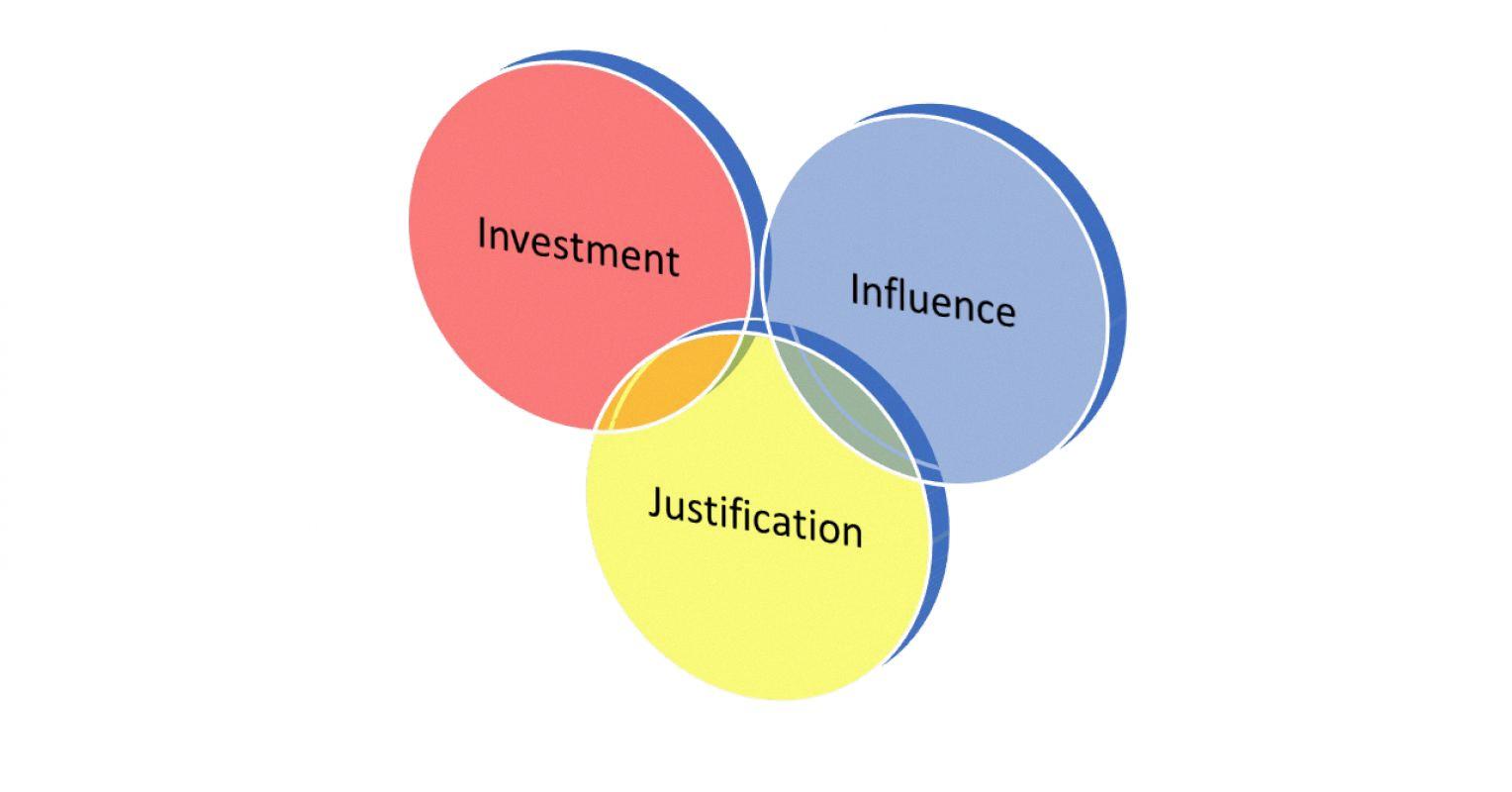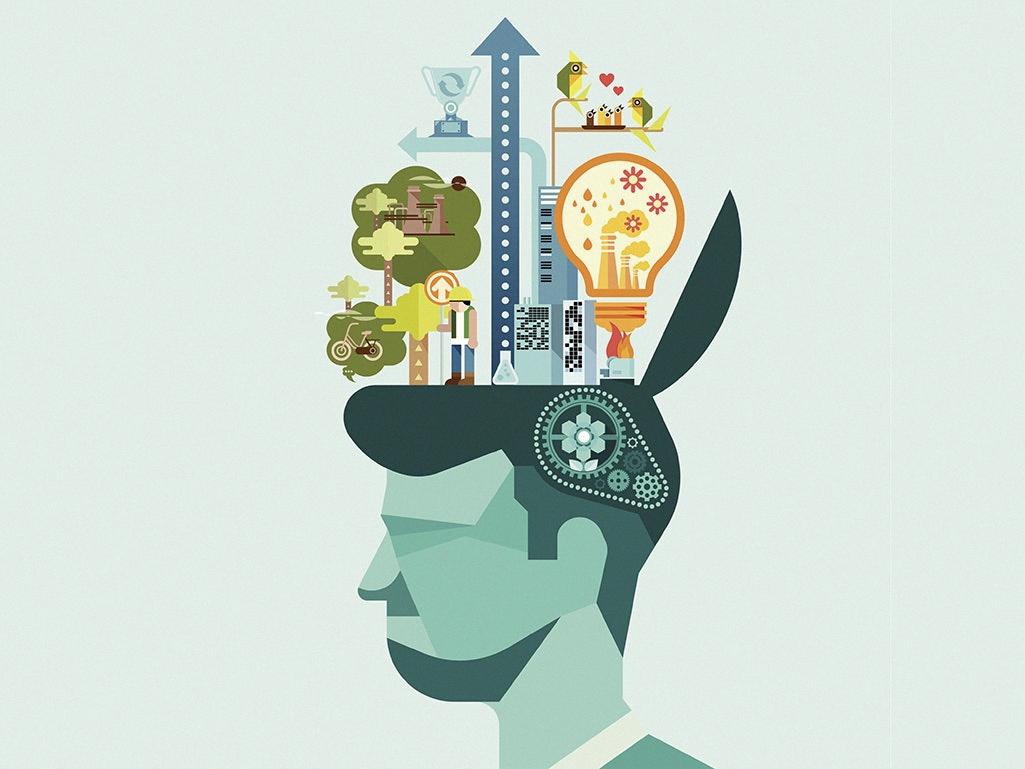Constructs are an important part of psychology, providing understanding and insight into human behavior. Constructs are mental syntheses of ideas and theories that cannot be physically touched or directly observed, but can still be inferred from behaviors. Examples of psychological constructs include love, stress, depression, justice, beauty, happiness, health, brand loyalty, purchase intent, and customer satisfaction.
Social constructs are concepts that have been created as a result of human interaction. They exist because humans agree that they exist and can take many forms such as countries and money. Social constructs can be seen as a way to create order in society by providing a framework for understanding the world around us.
Constructs provide psychologists with a way to better understand human behavior by creating hypothetical frameworks in which behavior can be observed and studied. By examining these frameworks, psychologists can gain valuable insight into how people think and act in different situations. Constructs also allow for the testing of hypotheses about the relationships betwen different concepts or ideas in order to better understand their impact on behavior.
Overall, constructs are an invaluable tool for psychologists and provide them with the ability to gain greater insight into the complexities of human behavior. Through the careful use of constructs such as social or psychological ones, psychologists can gain greater understanding into why people think and behave the way they do in certain situations.
Definition of Construct in Psychology
A construct in psychology is a theoretical concept used to explain and understand complex behavior. Constructs are usually abstractions based on observations of the real world and can be used to develop theories or explain events. Constructs can range from simple ideas, such as the concept of “happiness”, to more complex concepts, such as “social identity”. Constructs are often used in psychological research to measure or explain different aspects of behavior, such as motivation, learning, and personality. Constructs are also useful when trying to understand how different factors interact to produce cetain outcomes. For example, constructs such as “self-efficacy” or “locus of control” can help researchers understand why people respond differently to the same situation.

Source: psychologytoday.com
Examples of Psychological Constructs
Psychological constructs are abstract concepts that cannot be directly observed or measured. Examples of psychological constructs include intelligence, motivation, self-esteem, personality, and emotions such as fear, joy, and anger. Psychological constructs are often studied through subjective measures such as questionnaires and interviews in order to gain insight into how these psychological phenomena may influence behavior. Psychological constructs can also be studied through objective measures such as brain imaging and physiological recordings in order to determine underlying biological mechanisms.
Examples of Constructs
Examples of constructs include attitudes, beliefs, perceptions, and intentions. Attitudes are a person’s general feelings about a topic or object, such as their attitude towards a particular brand or product. Beliefs refer to a person’s subjective understanding of the world and can influence their decisions or behaviors. Perceptions are the way in which an individual interprets an event or situation based on their unique experiences and biases. Finally, intentions are the goals or motivations that a person has when engaging in certain activities. All of these constructs can be used to develop working hypotheses in marketing research.
The Role of Constructs in Social Psychology
A construct in social psychology is an abstract concept or idea that helps to explain and interpret observations about the behavior of individuals and groups. Constructs often serve as building blocks for developing theories and hypotheses about how people interact with their environment. Constructs can be used to measure and compare variables, such as attitudes, beliefs, values, and behaviors. They are also used to analyze relationships between different variables. For example, a researcher might use the construct of self-efficacy to examine the relationship between a person’s beliefs in their own abilities and their academic performance.
The Three Constructs of Psychology
The three major psychological constructs are intelligence, self-esteem, and depression.
Intelligence refers to the ability to thik abstractly, reason logically, and solve problems. This construct also involves the capacity for learning, understanding complex concepts, making decisions, and adapting to novel situations.
Self-esteem is a person’s overall evaluation of their own worth or value. It is often influenced by external factors such as relationship experiences, media messages and cultural norms. People with higher self-esteem tend to have more positive relationships and greater psychological well-being.
Depression is a mood disorder characterized by feelings of sadness, loss of interest in activities that were once enjoyable, disturbed sleep and appetite patterns, fatigue or low energy levels, poor concentration and feelings of guilt or worthlessness. It can be caused by a number of factors including genetic predisposition, stressful life events or substance abuse.

The Difference Between a Construct and a Concept
A construct is a theoretical construct used to explain a phenomenon or conceptualize a concept. Constructs are composed of multiple theoretical elements that represent different aspects of the concept. They are often used to organize and measure data, as well as provide an explanation for observed patterns in the data. Constructs can be used to describe both observable and unobservable phenomena, and are often used in psychological research.
A concept, on the other hand, is an abstract idea or notion. It can be defined as a mental representation of some object, event, person or experience. Concepts can refer to both real-world objects (such as “chair”) or abstract concepts (such as “justice”). Concepts are usually associated with words or symbols that represent them. They differ from constructs in that they can extend beyond actual cases and represent possile cases as well.
Types of Constructs in Psychology
Psychological constructs are postulated entities that provide explanatory power for various psychological phenomena. There are four main types of psychological constructs: cognitive, affective, social, and biological.
Cognitive constructs refer to mental processes or operations that enable us to think, remember, and reason. Examples of cognitive constructs include memory systems, decision-making processes, problem-solving strategies, and language processing abilities.
Affective constructs refer to emotions and the related physiological responses we experience in response to particular stimuli. Examples of affective constructs include fear, anger, joy, sadness, arousal levels, pleasure/displeasure ratings, and emotional intensity ratings.
Social constructs refer to the way people interact with each other in givn situations. Examples of social constructs include interpersonal communication styles (e.g., assertiveness), group dynamics (e.g., leadership styles), and cultural norms (e.g., gender roles).
Biological constructs refer to any biological process or structure that is relevant to understanding psychology-related phenomena. Examples of biological construct include the autonomic nervous system (ANS), endocrine systems (e.g., hypothalamic-pituitary-adrenal [HPA] axis) and brain structures (e.g., amygdala).
Understanding a Person’s Construct
A person’s construct is an individual’s mental framework for understanding their own experiences and the world around them. It is composed of the binary opposites of two distinct elements, such as safety versus adventure. It provides an individual with a way to organize and categorize the events and people they encounter in life, allowing them to give meaning to their experiences and navigate the world around them. Personal constructs are unique to each individual, and they evolve as a person grows, changes, and learns more about themselves and their environment.
Identifying a Construct
Constructs can be identified by looking at the underlying theoretical ideas that inform them. For example, if the construct is intelligence, we can look at the psychological theories of cognition and learning to understand how it is defined and measured. We can also look at how the construct has been operationalized in empirical research, such as through intelligence tests or self-report surveys. By understanding these theoretical and empirical components, we can gain insight into the nature of a construct and determine if it is relevant to our research.

Source: wired.com
The Definition and Example of Construct
An example of a construct in a sentence is: The architect carefully constructed a sturdy wooden bridge that could withstand heavy winds and support the weight of many vehicles. This sentence illustrates how the verb “construct” is used to describe the process of creating something, usually through careful planning and effort.
Types of Constructs
The two types of construct validity are convergent validity and discriminant validity. Convergent validity is the extent to which a measure corresponds to measures of related constructs. This means that when measuring a paricular construct, such as intelligence, it should correlate with other measures of intelligence (e.g., IQ tests). Discriminant validity is the extent to which a measure is unrelated or negatively related to measures of distinct constructs. This means that when measuring intelligence, it should not correlate with other measures not related to intelligence (e.g., personality tests). Both types of construct validity are important for ensuring that your measurement instrument accurately captures the concept being measured.
Conclusion
In conclusion, psychological construct is a tool used by psychologists to better understand human behavior. It is an intangible concept that cannot be directly observed or measured, but can be inferred though behaviors. Constructs are considered latent variables and are the basis of many working hypotheses in the field of psychology. Social constructs, on the other hand, are concepts that exist not in objective reality, but as a result of human interaction. Examples of social constructs include countries and money. Understanding the definition of psychological construct is important for psychologists as it allows them to better understand and predict human behavior.
